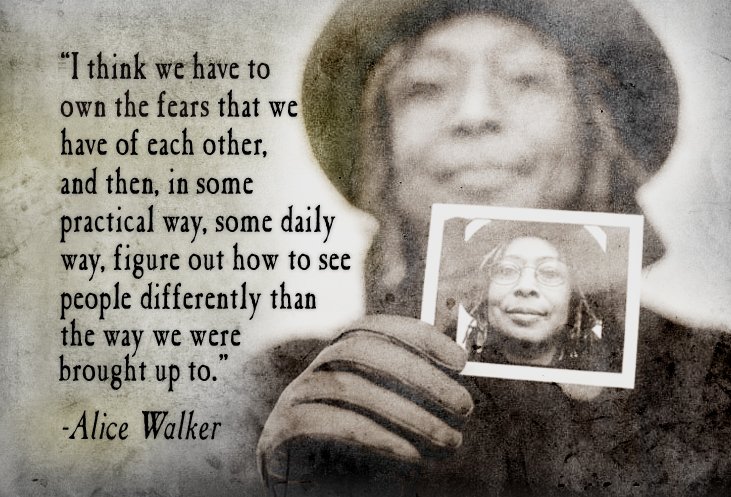
Talent-filled Tuesday
Alice Malsenior Tallulah-Kate Walker, award winning poet, novelist, activist, academic and gardener, was born in Eatonton, Georgia on February 9, 1944. She was the eighth child of Willie Lee and Minnie Grant Walker. Growing up, she witnessed firsthand the oppression and the inequity of share-cropping. Her parents were tenant farmers. Walker attended Spelman College on a scholarship she received because of a partially-blinding injury she suffered as a child. While at Spellman College, Walker became an active and militant member of the Civil Rights movement. Walker transferred to Sarah Lawrence to complete her college education. At Sarah Lawrence, she began to write poetry, some of which was published in her first books. Walker earned her college degree in 1965. The same year, she married Civil Rights lawyer Melvyn Leventhal, but the two divorced in the mid-1970s. In 1970, she published her first novel, The Third Life of Grange Copeland, which is about the experiences of a sharecropping family. Best known for her book The Color Purple, which won a Pulitzer Prize and the American Book Award and became a play and movie, Walker was a prolific writer and social commentator. She was the first Black woman to earn a Pulitzer Prize for fiction. Walker is an ardent feminist, centering the experiences of Black women in much of her work. She coined the term “Womanist” to represent the experiences of Black women, which she differentiated from those of White women. Famously, in a much cited comment, Walker observed that “womanist is to feminist as purple is to lavender.” Walkers papers are at Emory University. She is a member of Alpha Kappa Alpha Sorority.
Charles Christian, Black Saga: The African American Experience (1995)
Robert M. Valade III, The Essential Black Literature Guide (1996)
Alice Walker’s Official website https://alicewalkersgarden.com/